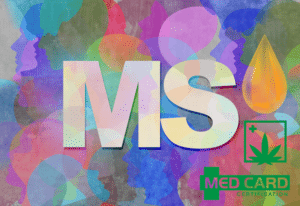How To Get A Marijuana Card Online In Nevada
Nevada – Telehealth gives patients the opportunity to visit with a marijuana card doctor in Nevada using your smart phone, tablet, or personal computer. Now, recreational weed is legal in Nevada, so why bother? The #1 answer, is the cost.
Live marijuana telehealth appointments can be done from anywhere in the state online without having to leave the house. No travel, in person doctor office visit, or inconvenience. Your Nevada medical card will be issued after the doctors approval. It doesn’t get any more germ free than this!
If you’re ready, simply fill out the MMJ patient registration form, press submit, and you’re on your way to a marijuana doctors appointment from the comfort of your living room or dining room table. You will receive an email with follow up details as well. See if you qualify today.
Find a Nevada Marijuana Doctor Near Me
Use telehealth telemedicine to get a Nevada medical card online from home.

Patient Registration Form


Nevada Medical Marijuana Qualifying Conditions
In order to take part in Nevada’s medical marijuana program, you must be officially diagnosed with one of a short list of medical conditions. The list is not as tight as it appears, with conditions including pain, anxiety and depression often directly linked to other conditions.
The following are the only currently approved conditions for the legal medicinal use of marijuana or marijuana products in Nevada:
A brief history of medical marijuana in Nevada
Way back in the 1910s and 20s, a wave of anti-cannabis sentiment swept over the country and the world. Back then, there was no distinction between industrial hemp and marijuana.
The movement to ban cannabis cultivation was spearheaded by powerful business and political leaders who saw industrial hemp as a threat to the lumber industry and who saw Mexican immigrants as a threat to society at large.
Nevada followed the pack and officially banned cannabis in all forms in 1923.
It would be another three-quarters of a century before any serious consideration was given to the idea of reforming Nevada’s cannabis laws.
The Nevada Medical Marijuana Act (Question 9) was approved by voters in 1998 by a double-digit margin. Voters approved the same measure again in 2000 by an almost two-thirds majority. Why did the measure appear on the ballot again two years after passing the first time? The answer is because the initiative called for no less than an amendment to the Nevada Constitution. And in order to go so far as to revise the state’s constitution, a measure must receive voter approval in two consecutive elections.
The initiative didn’t actually legalize medical marijuana. But it did require state lawmakers to do so. Assembly Bill 453 in June 2001 officially legalized medical marijuana in the state of Nevada as of October 1 of the same year.
What the bill did not do was create a means by which residents of Nevada could legally purchase their medicine. Medical marijuana patients had two choices at that time – they could either purchase marijuana illegally or grow their own. Medical marijuana cardholders were permitted to grow up to 12 marijuana plants at home.
The same bill also decriminalized marijuana replacing felony sentences with misdemeanor charges. At that time, the registration process was ridiculously slow prompting a class-action lawsuit intended to reform the current system.
In 2002, another voter initiative gathered enough signatures to make the ballot. This time authors of the proposal sought to legalize and regulate the recreational use of marijuana in Nevada. The initiative, known as the Decriminalization of Marijuana Amendment (Question 9) was soundly defeated by a two to one margin.
In 2006, another recreational use measure, the Regulation of Marijuana Initiative (Question 7), was again defeated, but by a much smaller margin.
Then, more than ten years after legalizing medical marijuana, in June 2013, Senate Bill 374 was signed into law creating a state-regulated system for the commercial production and distribution of medical marijuana.
However, the state’s sluggish license approval process and complex scoring and ranking system caused continued delays in implementation. License limits were at 182 cultivators, 118 processors, 55 dispensaries, and 17 testing laboratories. However, only 12 dispensary licenses were awarded. The limited market created fierce competition among companies vying to be awarded the coveted licenses but the process resulted in an atmosphere where dispensaries were well-funded, expertly executed, and elegantly designed.
For recreational initiatives, the third time’s a charm, as they say, and in 2016, the Initiative to Regulate and Tax Marijuana (Question 2), was passed by voters officially legalizing the possession of up to one ounce of marijuana for adults over the age of 21. Marijuana was officially legal for all adults in Nevada on January 1, 2017.
But the implementation of the state’s recreational program did not kill the medical marijuana program. We’ll talk about the differences here shortly.
Nevada Marijuana Q&A
What Are The Nevada Marijuana Laws?
-
- Age limit – Adults 21 and over may legally purchase up to 2.5 ounces of marijuana of up to 3.5 grams of concentrate in any 14-day period, and may grow up to six mature marijuana plants at home.
- Growing – Nevada residents may grow up to six mature plants at home. However, unless you live more than 25 miles from a dispensary, being caught with more than the legal limit can result in criminal penalties. If you’re caught growing more than 12 plants at any stage of growth, if convicted, you’re looking at a minimum of 1 year in prison and a fine of up to $5,000. There are some extenuating conditions which come into play for medical cardholders such as whether or not you were legally growing marijuana on or before July 1, 2013, whether dispensaries in your county closed, whether a dispensary is operating within 25 miles of your home when you first applied for a card, and so on.
- Selling – Get convicted of selling marijuana and you’re looking at potential fines up to $5,000 and a minimum one year in prison, up to four years. If the amount is over 100 pounds that fine goes up to $25,000. If you’re cooperative, a judge may opt to give you probation and require you attend a drug education or treatment program.
- Selling to a minor – Selling marijuana to a minor is, to put it mildly, a definite no-no. If you’re caught selling marijuana to a minor in Nevada you’re committing a category A felony punishable by up to life in prison, with a minimum of 5 years before parole would even be considered. It also comes with a fine up to $20,000. Even just selling a pipe to a minor comes with a minimum one-year sentence and $10,000 fine – plus the costs of drug treatment for the kid to whom you sold the marijuana or the pipe.
- Asset seizure and forfeiture – Criminal marijuana possession charges also put you at risk of asset seizure and forfeiture.
- Drugged driving – The limit of THC per millimeter of urine is 10 nanograms and it’s 2 nanograms per milliliter of blood. Penalties range from a $400 fine, 2 days in jail, and 48–96 hours of community service, to a $5000 fine, 1-6 years in prison depending on how many times you’ve committed the offense. Cars aren’t the only vehicles you should avoid operating if you’re stoned. Operating an airplane, a boat, or a jet ski while stoned is prohibited. Even surfing while stoned is prohibited.
- Guns – Although Nevadans are allowed to possess guns, they are prohibited from purchasing a firearm while high.
- Public use – Of more relevance to the average medical marijuana user in Nevada is the fact that it is illegal to use marijuana in public spaces. Although you won’t be taken down to the station, you are looking at a criminal misdemeanor charge that comes with a ticket up to $600. That’s one expensive joint.
How Do I Get a Medical Marijuana Card in Nevada?
- You need to get an application packet. There’s a $25 non-refundable fee. There are links at the end of this article to the web page where you can order the packet.
- Upon receiving the packet, you’ll need to fill out the forms and gather the required documentation.
- You’ll need to obtain a written statement from a Nevada board-certified physician in good standing stating that you do, indeed, have one of the qualifying conditions and your condition can be treated with medical marijuana. The doctor must attest that the following conditions are met:
- The patient has been diagnosed with a qualifying chronic or debilitating medical condition.
- The medical use of marijuana may mitigate the symptoms or effects of the condition.
- The attending physician has explained the possible risks and benefits of the medical use of marijuana.
- Once you’ve got the note from your doctor, submit the completed packet along with a check for $75 to the state Division of Public and Behavioral Health. The address will be on the packet.
- Once the state verifies that everything looks good, they’ll run a background check to look for any drug-related criminal history.
- Assuming you pass the background check, you’ll be sent an approval letter. This letter is good for 14 days while you wait for your actual card to arrive in the mail.
What Are Nevada Medical Marijuana Caregivers?
How Do I Renew a Nevada Medical Marijuana Card?
Registry cards must be renewed annually. If you stop using medical marijuana you’re technically required to surrender your card to the state within 7 days. That means if you start buying as a recreational consumer you lose the benefits that come with holding a Nevada medical marijuana card. So what exactly are the benefits of being a registered medical marijuana patient over just buying as a recreational consumer?
What Are The Benefits of Being a Registered Medical Marijuana Patient?
There are some benefits to going through the process of getting your Nevada medical marijuana card if you are legitimately using marijuana as medicine.
- Medical treatment – For one thing, if you’re using marijuana to treat a disease, your doctor should know about it. Period. End of story. Your usage and results will be documented by your physician so that your treatment program can be tweaked to provide the most medicinal benefit or to identify unwanted and avoidable side effects.
- Under 21 – Another benefit is that minors are allowed to participate in the medical marijuana program but not the recreational program. So if you are between 18 and 21 years of age you can participate in the program. And if you’re a legal guardian of a patient under the age of 18, you can enroll a child of at least 10 years of age.
- Medical necessity defense – Patients and caregivers caught with more than the legal limit are entitled to present a medical necessity defense in court. It could mean the difference between going to jail for a year or getting probation.
- Out-of-state reciprocity – Also, you’ll be able to purchase medical marijuana not only in other states with recreational marijuana but also states with only medical marijuana programs that offer reciprocity. (That just means each state honors the other state’s medical marijuana card.) This is actually a pretty big benefit. The states that offer reciprocity with Nevada include:
- Alaska
- Arizona
- Arkansas
- California
- Connecticut
- District of Columbia
- Delaware
- Ely Shoshone Tribe
- Hawaii
- Illinois
- Maine
- Maryland
- Massachusetts
- Michigan
- Minnesota
- Montana
- New Hampshire
- New Jersey
- New York
- New Mexico
- Ohio
- Oregon
- Pennsylvania
- Pyramid Lake Paiute Tribe
- Rhode Island
- Vermont
- Washington
- Yerington Paiute Tribe
Insurance coverage – This one’s not here yet, but at some point in the future insurance companies may offer reimbursement for your medicine if you are an actual registered patient.













